De: R$ 0,00Por: R$ 295,72ou X de
De: R$ 0,00Por: R$ 295,72ou X de
| Origem | Literatura Estrangeira |
|---|---|
| Quantidade de Páginas | 302 |
| Acabamento | Capa Comum |
| Autores | John I. Moore |
| Idioma | Inglês |
| Edição | 0 |
| Selo | SoftMoore Consulting |
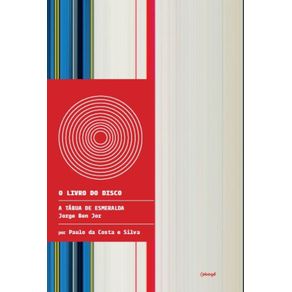 Jorge Ben - A tábua de esmeralda
Jorge Ben - A tábua de esmeralda
Cobogó
R$ 53,00 à vista Manual de Cianotipia e Papel Salgado
Manual de Cianotipia e Papel Salgado
Ibis Libris
R$ 43,75 à vista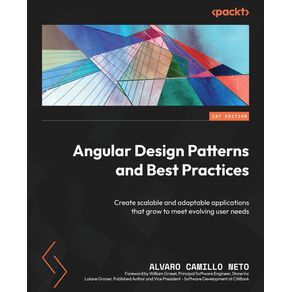 Angular Design Patterns and Best Practices
Angular Design Patterns and Best Practices
Packt Publishing
R$ 323,97 ou até 3x sem juros Teoria Musical para Baixistas
Teoria Musical para Baixistas
CapCat Music Publishing
R$ 188,53 ou até 3x sem juros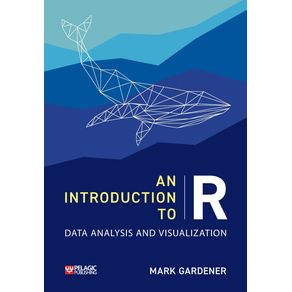 An Introduction to R
An Introduction to R
Pelagic Publishing Ltd
R$ 411,27 ou até 3x sem juros The AI-Powered Product Manager
The AI-Powered Product Manager
Draft2Digital
R$ 162,98 ou até 3x sem juros Understanding Crypto Fundamentals
Understanding Crypto Fundamentals
Springer Nature B.V.
R$ 209,97 ou até 3x sem juros Smart Until Its Dumb
Smart Until Its Dumb
Applied Maths Ltd
R$ 117,01 ou até 2x sem juros Privacy in the Age of Big Data
Privacy in the Age of Big Data
Rowman & Littlefield Publishing Group Inc
R$ 294,58 ou até 3x sem juros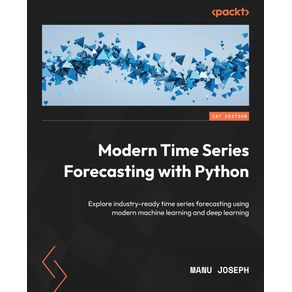 Modern Time Series Forecasting with Python
Modern Time Series Forecasting with Python
Packt Publishing
R$ 453,53 ou até 3x sem juros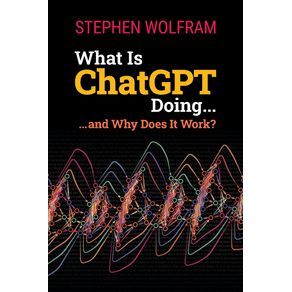 What Is ChatGPT Doing ... and Why Does It Work?
What Is ChatGPT Doing ... and Why Does It Work?
Wolfram Research, Inc.
R$ 105,01 ou até 2x sem juros A New Day Yesterday
A New Day Yesterday
Music Sales Limited
R$ 212,68 ou até 3x sem juros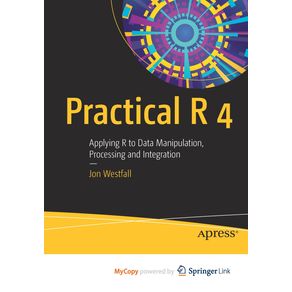 Practical R 4
Practical R 4
Springer Nature B.V.
R$ 219,66 ou até 3x sem juros Geschichte der Deutschen Musik
Geschichte der Deutschen Musik
Legare Street Press
R$ 210,93 ou até 3x sem juros Chuck Dixons Avalon Volume 1
Chuck Dixons Avalon Volume 1
Castalia AG
R$ 305,28 ou até 3x sem juros Meu mundo mágico
Meu mundo mágico
Fasolo, Gabriele
R$ 40,90 à vista Angular Design Patterns and Best Practices
Angular Design Patterns and Best Practices
Packt Publishing
R$ 323,97 ou até 3x sem juros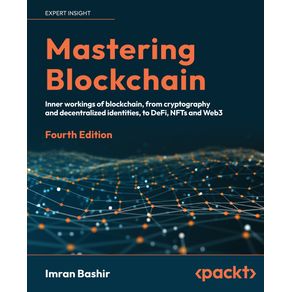 Mastering Blockchain - Fourth Edition
Mastering Blockchain - Fourth Edition
Packt Publishing
R$ 442,66 ou até 3x sem juros The Triumph of Romanticism
The Triumph of Romanticism
Os Justi Press
R$ 171,35 ou até 3x sem juros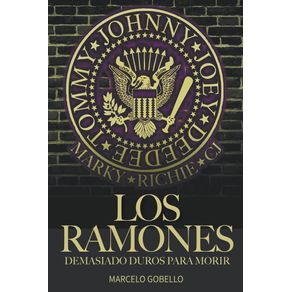 Los Ramones
Los Ramones
Draft2Digital
R$ 193,18 ou até 3x sem juros The Confident Stylist
The Confident Stylist
Echo Books
R$ 168,01 ou até 3x sem juros An Enchanting World
An Enchanting World
Julia Spiri
R$ 81,33 à vista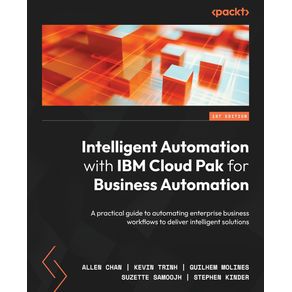 Intelligent Automation with IBM Cloud Pak for Business Automation
Intelligent Automation with IBM Cloud Pak for Business Automation
Packt Publishing
R$ 341,88 ou até 3x sem juros Salad Days#1
Salad Days#1
Via Lactea Ltd.
R$ 202,68 ou até 3x sem juros Seeking Brakhage
Seeking Brakhage
Fred Camper
R$ 185,63 ou até 3x sem juros The Complete Woodcuts of Albrecht Dürer (Dover Fine Art, History of Art)
The Complete Woodcuts of Albrecht Dürer (Dover Fine Art, History of Art)
Echo Point Books & Media, LLC
R$ 258,07 ou até 3x sem juros Geschichte der Deutschen Musik
Geschichte der Deutschen Musik
Legare Street Press
R$ 210,93 ou até 3x sem juros Python for Finance Cookbook - Second Edition
Python for Finance Cookbook - Second Edition
Packt Publishing
R$ 438,63 ou até 3x sem juros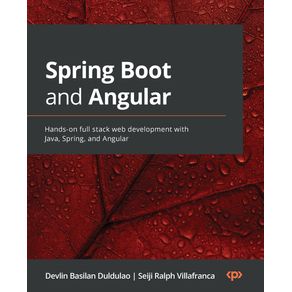 Spring Boot and Angular
Spring Boot and Angular
Packt Publishing
R$ 341,30 ou até 3x sem juros Angels and Cherubs
Angels and Cherubs
Vault Editions LTD
R$ 154,03 ou até 3x sem juros Meu mundo mágico
Meu mundo mágico
Fasolo, Gabriele
R$ 40,90 à vista The Triumph of Romanticism
The Triumph of Romanticism
Os Justi Press
R$ 171,35 ou até 3x sem juros Los Ramones
Los Ramones
Draft2Digital
R$ 193,18 ou até 3x sem juros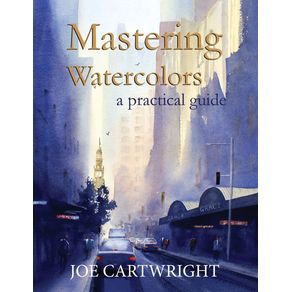 Mastering Watercolors
Mastering Watercolors
Joseph Cartwright
R$ 108,01 ou até 2x sem juros The Confident Stylist
The Confident Stylist
Echo Books
R$ 168,01 ou até 3x sem juros Christian Petzold
Christian Petzold
University Press of Mississippi
R$ 167,98 ou até 3x sem juros An Enchanting World
An Enchanting World
Julia Spiri
R$ 81,33 à vista A New Day Yesterday
A New Day Yesterday
Music Sales Limited
R$ 212,68 ou até 3x sem juros LIDEOLOGIA DEL FASCISMO - il fondamento razionale del totalitarismo
LIDEOLOGIA DEL FASCISMO - il fondamento razionale del totalitarismo
Lulu Press
R$ 367,88 ou até 3x sem juros Guided Practice Routines For Guitar - Foundation Level
Guided Practice Routines For Guitar - Foundation Level
Fundamental Changes Ltd.
R$ 143,52 ou até 2x sem juros Bruce Lee Enter the Dragon Scrapbook Sequences Vol 6
Bruce Lee Enter the Dragon Scrapbook Sequences Vol 6
Eastern Heroes
R$ 179,16 ou até 3x sem juros The Monstrous-Feminine
The Monstrous-Feminine
Taylor & Francis Ltd
R$ 474,57 ou até 3x sem juros Python for Finance Cookbook - Second Edition
Python for Finance Cookbook - Second Edition
Packt Publishing
R$ 438,63 ou até 3x sem juros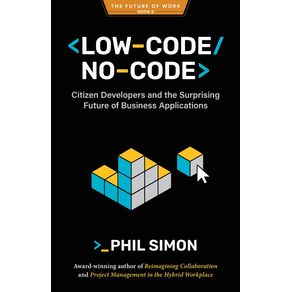 Low-Code/No-Code
Low-Code/No-Code
Racket Publishing
R$ 154,81 ou até 3x sem juros Sonic Meditations
Sonic Meditations
Indy Pub
R$ 112,52 ou até 2x sem juros